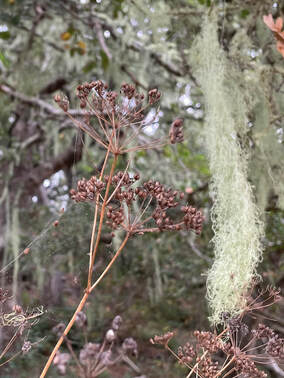 I remember a conversation I had when my son was two years old about the nature of impermanence. It started when he was playing with a helium balloon that was leftover from a birthday celebration. I told him to be careful to keep the balloon inside the house, but he managed to slip out onto the porch with it when I wasn't looking. Within minutes I heard his heartbroken cries "Get it back, mama! Get it back!" and I ran out just in time to watch with him as it sailed up, up, up to the top of the redwood trees and beyond. A week later he and his big brother were playing with a non-helium balloon on the trampoline, and as we eventually heard the inevitable pop, he once again began to sob inconsolably for his loss. After his weeping subsided I asked gently, "We got to really, really enjoy all these balloons while we had them though, right?" He paused before answering. "Yeah. Balloons fly away and they also pop. Balloons just have to go bye bye, and we just have to let them go bye bye," was his sage reply. And one last parable from my children's wisdom: Recently, my older son, who is a huge fan of amusement park thrill rides, convinced me to go on a rollercoaster with him. The next day I was moaning and groaning a bit about how I actually felt like I had whiplash. My son asked why, and I explained how when we went on the rollercoaster I was holding onto the bar so tightly that all of my arm and neck muscles got completely sore. He looked at me a moment and then said "You know, mama, next time just try not to hold on so tight. It's much more fun and easy if you just let go."
0 Comments
With colder weather settling in we certainly see more respiratory viruses circling around these days. But we don't have to be sitting ducks! There is so much we can do to strengthen our "Jade Screen"- what in Chinese Medicine we call our defensive Qi, and in Western physiology we call a healthy immune system.
Aligning with the seasonal energy by resting and sleeping more really helps bolster one's immune system. Keeping sugar and alcohol consumption in check is also key for this, of course. So is eating whole foods that are rich in immune-strengthening nutrients. We all know about the importance of Vitamin C, but Vitamin A is also one of those key nutrients for strengthening immunity. Grass-fed ghee, butter, and egg yolks are all rich sources of vitamin A (so is liver, if you can hang with eating it, but full disclosure: I cannot!). A precursor to Vitamin A, the antioxidant Beta-Carotene, can be found abundantly in carrots, sweet potatoes and winter squashes. And what do you know, these happen to be some of the main veggies we eat for autumn celebrations! Zinc is another often unsung hero for immune support, and one in which many people are quite deficient. One of the richest food sources for zinc is red meat. I encourage people who are not vegetarian to consider including small therapeutic amounts of pasture raised beef or lamb in their weekly diets, especially in the colder autumn and winter months. A little goes a very long way in terms of nutrient density, and the payoff in immune support is great! It's not only the zinc that makes red meat a wonderful food for this time of year. From the Chinese Medicine understanding of food energetics, red meat is very warming and strengthening of yang qi-- making it a perfect autumn and winter staple. People who run cold, are low energy, and who tend to contract viruses easily can definitely benefit from at least a serving or two of red meat a week to nourish their yang qi, as well as tonify their blood. Other foods that are helpful for immune support include allium vegetables like onions, leeks, scallions and garlic. Pungent white vegetables like these, as wells as radishes, are understood within the Chinese Medical framework to be supportive of lung health and the metal element- both associated with autumn. Lastly, spices like turmeric and ginger are wonderful staples in an autumn diet, as they warm the body, reduce inflammation, and release exterior invasions (also known as viruses) from the body. I'd like to share three of my favorite autumn recipes that feature these immune strengthening ingredients. These recipes are food as medicine: for nourishing the body, strengthening the defensive Qi, and comforting the spirit on a cold autumn day (or night)! As we move further into the season of autumn, the energetic of the metal element sparkles with increasing brilliance and clarity. The Five Element healing wisdom from Chinese Medicine teaches us that the metal element is about letting go of what is not needed (the dead leaves of autumn) while holding onto and cherishing what is precious to us (the gold dust in our lives). This means that fall is the perfect time of year to focus on simplification, and paring down to what is essential.
Now is a good time to ask ourselves what we are ready to let go of, so that we make more room for what is really of value to us. One way we can practice letting go is to actually go through our homes and "purge" any of our physical possessions that we no longer personally need or value. Donating these things to charity organizations is a simple act of generosity, and the clearing out of one's living space can have a profound effect on one's mental and psychic clarity. In addition to physical decluttering of our living spaces, we can also go a little deeper to simplify on the psychological and spiritual levels. It can be helpful to look at all the ways in which we over-clutter our own minds. A profound medicine for me personally on this level is daily meditation. I think it really is an ultimate medicine for all of us, as it allows one to access the clear open sky within one's consciousness. How to be Winter...
The bare bones. What is known of the unknown? What wordless wisdom lies down deep within my bones? Beneath the skin, beneath the flesh, beneath the firing circuitry of mind Winter has asked me to be heavy to drop deep to let myself steep in the obsidian tonic of sleep. Winter's wisdom seeps down to my bones and all that is not known is fine. It is fine to not know. Transforming fear into wisdom, with faith as my stepping stone. Drop me down. Drop me down to the level of bone. I can face what is not known. Embracing unseen mystery, Winter says to me: I am not the rising sap of the tree I am not the beckoning bloom I am not the ripe, round fruit I am not jeweled leaf, descending I am the root dug deep entwined in cold, damp earth. I am the seed that sleeps dormant, teeming with potential, my destiny coiled and ready to spring, come spring. But for now I sleep. I steep. I surrender to the deep, to the unknown, to what is known only in the bones, to the wordless wisdom of buried root and seed. The above poem came to me last year as I contemplated the energetic quality of winter. The darkest time of the year, this is a time when we too go into darkness, into greater stillness and quietude. In this dark, still, and quiet place we can sit with the mystery of life; we can discover what wisdom or insights might lay dormant beneath the surface of our conscious, active minds. Winter is an opportunity to drop down into our depth of being. To do this, we need to shift down into a much slower pace. We also do this shift so we can preserve and replenish our vital energy. Winter is the season of deep replenishment, deep rest, deep repair. A time for restoration and going inward. Hibernation. If we never stop moving in life, we will burn out. Winter is the time to stop, or at the very least, to really, really, REALLY slow down the pace, as much as we can. "Nothing in the world is as soft and yielding as water. Yet for dissolving the hard and inflexible, nothing can surpass it. The soft overcomes the hard; the gentle overcomes the rigid. Everyone knows this is true, but few can put it into practice." ~Lao-tzu, Tao Te Ching In the system of the Five Elements, Winter is the season of the Water element. Water teaches us so much about surrender, about yielding, about dropping down into one's depth. Water is also a great source of vitality and power; it is the essence of life itself. In Chinese Medicine, winter and the water element are connected to the kidneys, which are understood as holding our deepest reserves of vitality (in western physiological terms, we can think of the water element as relating to the adrenals, hormones, and the nervous system). Winter is a time to nourish our Water element: we support the health of the kidneys and balance our adrenal function. We shift our nervous system from being predominantly in sympathetic mode (fight, flight or freeze) to parasympathetic mode (rest and digest). But how, in practical terms, do we do actually do this? How can we actually shift to be in greater alignment with winter and the water element? The short answer: less output, less input, and waaayyyyy more rest. Here are some practical ways I suggest embodying the energy of winter... *Do less (less output): It is a great practice of seasonal alignment to simply make and accomplish fewer goals in winter than you do in the other seasons. Pare down your "to do" list to only what is absolutely essential, or stretch out your "to do" list so that what you might do in one day gets spread out over a few days instead (or even a few weeks if you can). If there is a big project or goal brewing inside of you, try waiting until early spring to start it. For now, dream about it and hold it inside you, like a seed that awaits the sun of springtime to sprout and grow. The days are shorter in winter; keep them simpler, and do less. Allow yourself to actually physically move more slowly through your daily activities, with much greater mindfulness. This is not being lazy, though it does go against the grain in a society that places so much value on outward activity and productivity. But this is actually how we replenish our vitality- by slowing down, and even stopping. Winter is about conserving our energy, it's about preservation. There needs to be the balance between the doing-ness of yang and the being-ness of yin. Winter is a time to do less. Like a bear in a cave, like a seed dormant in the ground, we store and preserve our vital energy in the season when the yang energy (of activity and manifestation) is at its lowest. *Pare back on screen time/technology (less input): Though it does have some virtues, modern technology is really wrecking havoc on our nervous systems. Aside from the negative effects that excessive screen use and wi fi has on the physical body, on a spirit level it is depleting to be constantly consuming all of this information and stimulation through our eyes and into our consciousness. This constant input into our nervous systems takes a toll physically, emotionally, and spiritually. This is especially true at night, when we should allow our consciousness to drop down into a place of greater quiet and stillness. *Sleep more (replenishment): Just as the sun sets so much earlier this time of year, so too should we move into sleep and darkness at an earlier time in the winter. I recommend going to bed an hour earlier than you do in the spring and summer, and no later than 10:00 pm, with 9:00 or even 8:00 being ideal for some people's optimal winter replenishment. Sleep is how the tissues in our bodies repair themselves, and it's how our minds process and release content. As my incredibly wise teacher Thea Elijah says regarding sleep, "If there is something you can do for eight hours and feel completely transformed at the end of it, that is not inactivity. Something unbelievably profound is happening. Something without which we could not survive even with all the willpower in the world. Healing does not happen through activity. Healing is a rest state response." Winter is a time to get whole lot more sleep, allowing our bodies to heal, and our minds to untangle and release their various knots. We also strengthen our immune system with more sleep, which of course is vitally important this time of year! If you want more sleep, but struggle with insomnia and sleep issues, I recommend the previous two suggestions of less output and less input, as well as the following suggestions. *Reduce caffeine When we drink too much caffeine, especially coffee, we send our body into a stress state response, where more stress hormones such as cortisol are released. Caffeine sets our nervous system to the fight, flight or freeze mode. We may feel more alert and productive, but we do so at a steep cost to our adrenal health and our kidney energy (in CM understanding, caffeine depletes our kidney energy and water element). Tiredness, after all, is an indication not that we need more caffeine, but that we need more rest (or that our body needs tonification, which Chinese Medicine can greatly help). *Regulate your stress response: Easier said than done, but necessary nonetheless! The negative health effects of chronic stress are simply too many to list, as I'm sure we all know. All of the other suggestions listed above will be helpful to having a more balanced stress response; so will having a daily stress management practice such as meditation, yoga, tai chi or qi gong. In addition, acupuncture can be greatly beneficial for stress and anxiety. In my clinical practice, I use the synergy of acupuncture, bodywork, personalized herbal prescriptions, nutrition, and lifestyle counsel to help guide my clients into a calmer, more balanced state of body and mind. In the summer, I love to make salads made from quinoa mixed with a flavorful herbal green sauce. To this I will add seasonal veggies, olives or artichoke hearts, and sometimes a sprinkling of feta cheese or pumpkin seeds for more protein. Quinoa itself is one of the more protein-rich grains (though to be accurate, quinoa is actually considered a "pseudo-grain"). Quinoa is also gluten-free, and in Chinese Medicine nutritional theory it is considered to be slightly tonifying to kidney yang, thus strengthening the body's overall vitality.
On warmer summer days when I want to eat something that is both nourishing and light, quinoa salad really hit the spot. I make my quinoa salad using one of two different green sauces: either classic basil pesto or a cilantro/parsley Moroccan green sauce (known as Chermoula). Aside form being insanely delicious, both of these sauces use dark leafy green herbs that are healing and slightly cleansing to the body; they also include garlic which is an important herb for cardiovascular as well as immune health. Add to this salad some fresh, seasonal veggies and some nuts or seeds (or feta if you tolerate dairy) and you have a delicious, light summer meal or side dish.  I have always felt a deep, soul-level connection with the natural world. Nature has been my teacher, my healer, and my closest friend. It is not a coincidence that for my vocation in life I chose to practice a form of medicine that is completely based upon observing the patterns and principles of nature. In Chinese Medicine, we use these patterns and principles of nature to diagnose as well as to help guide people back into a greater state of balance. As practitioners of this wise, nature-based medicine, we use the ancient technologies of acupuncture, herbalism, Qigong, lifestyle guidance, and other modalities. With nature being the bedrock for both my personal and professional life, as well as the muse for most of the poetry and prose that I write, this month I'd like to share some of my personal contemplations on the different ways in which nature manifests as medicine for the soul. Each different facet of nature has its own energetic healing qualities; we all will connect with these facets in our own unique way. My hope is that these personal reflections will inspire you to deepen into your own personal relationship with nature, and to explore for yourself what healing medicine the natural world holds for you. Tomorrow is the spring equinox, marking the season of the wood element in the ancient Chinese Medicine system of the Five Elements. On an energetic level, this springtime energy within each of us is the dimension of ourself that can bounce back and keep growing towards the sun, just like a tree or plant, in spite of life's obstacles. You know when you see little plants coming up through the sidewalk, or the roots of a tree breaking up the concrete? That is the wood element: determined to keep aspiring and growing, concrete be damned! A wonderful symbol of the wood element that many of us can connect with is a redwood tree. Strongly rooted in the earth, they are able to sway in strong winds without snapping or falling down. And always they aspire higher and higher towards the sun, while firmly rooted in the earth. This is the energetic quality of wood and springtime. When we hear the word "super food" many of us might think of things like spirulina, royal jelly, bee pollen, and acai. But the humble egg, as ubiquitous as it may be, is actually quite the nutritional powerhouse. When eggs are sourced from pasture-raised chickens, they are not only rich in protein, but also in the fat soluble vitamins A and D: nutrients in which many people are deficient. Pasture-raised eggs contain choline and omega-3 fatty acids, both of which are nutrients important for brain health. In addition, eggs are rich in sulphur-containing proteins that are necessary for cell membrane integrity.
Eggs also contain cholesterol, which is actually a good thing! For decades the mainstream medical world had advised against consuming dietary cholesterol; only just recently has it come around to acknowledging that dietary cholesterol plays a key role in health, particularly in hormonal health, fertility, and mental health. For ages, traditional cultures across the globe have been consuming wild caught and pasture-raised eggs (as well as other cholesterol-containing foods), without experiencing the epidemic rates of heart disease that we see in our modern western society. Increasingly, scientific evidence is linking heart disease to the consumption of highly inflammatory foods such as sugar and refined flours, as well as modern industrial vegetable oils like soybean oil and corn oil. These modern industrial foods have never been a part of traditional diets; since they have entered the modern diet we can see a proportional acceleration in chronic inflammatory disease (for more information on traditional diets, I highly recommend the book Full Moon Feast by Jessica Prentice). Sometimes the most simple self-care rituals can be the most profound, especially when done with great intention. I'm sharing one of my favorite self care rituals for winter, one that is especially beneficial to do when we feel we need to drop into a deep state of relaxation, and fast! Though this can be done any time of the year, I especially love this self-care ritual for winter because winter is the season of the water element, and it is the time of utmost yin, which is the energy of stillness, silence, darkness, and going inward. This self-care ritual of immersing oneself in water and darkness is the ultimate yin experience, and a wonderful way to deeply soothe the nervous system.
In honor of the Winter Solstice I'd like to share a simple and delicious tea recipe that is a perfect accompaniment to this seasonal dynamic. Just as on winter solstice we see the rebirth of the sun from the depth of winter, this warming yellow tea is like a burst of sunlight to warm us on a cold, dark day. Three golden and yellow ingredients-- ginger, lemon, and honey-- come together in a tea that is great for strengthening the immune system and warding of colds, and also for alleviating symptoms if a cold has already set in. I love that the colors of all the ingredients in this tea are yellow and golden; it really does evoke the sunlight we so often crave in the cold and dark of winter.
|
AuthorI am a licensed acupuncturist and herbalist with a Heart-centered practice in the Santa Cruz mountains. See my About page for more about me and the work I do. Archives
September 2023
Categories |
Proudly powered by Weebly
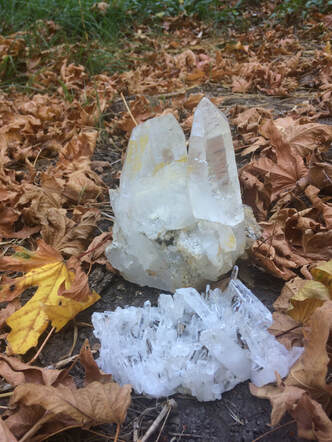
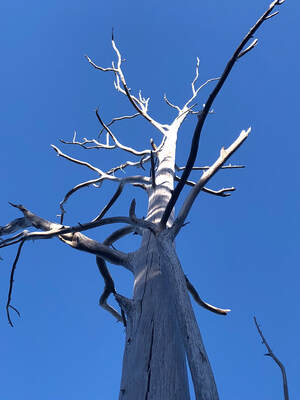
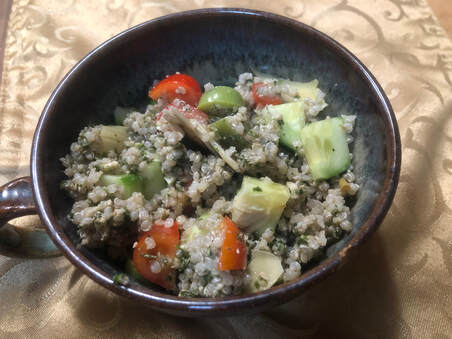
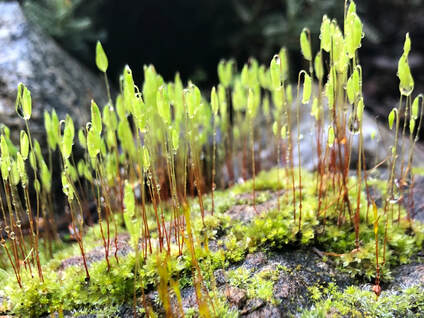
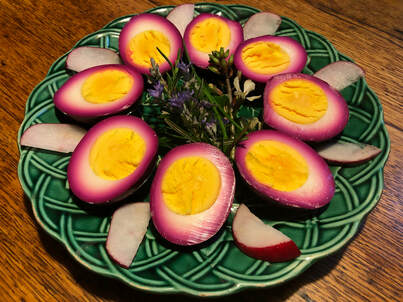
 RSS Feed
RSS Feed